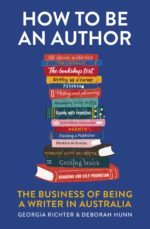Where do our stories come from and how can new authors connect with Fremantle Press?
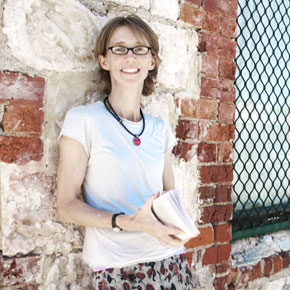
From the slush pile to a $12,000 prize, and from writers centres to universities, if you’ve ever wanted to be an author, publisher Georgia Richter’s reflections about where writers come from, what she’s looking for in a writer, and how you can engage with Fremantle Press, will be invaluable.
Where do stories come from?
This is a big question, with a somewhat mystical answer: they come from the deepest part of ourselves. They come from a desire to make sense of the world. They have been around ever since humans gathered round a fire. Stories keep the dark out, and help us control what we don’t understand. Stories are how we articulate our place within it, how we express hope, desire and mourning. They are our entertainment and our collective memory, they are the way we create empathy in order to persuade, challenge, reform and dream.
Where do writers come from?
Every published writer has something in common: the desire to write, and the desire to be read. When author Goldie Goldbloom was a child, her grandmother gave her a Fremantle Arts Centre Press book every year for Christmas. It was Goldie’s dream that one day she would have a book published by Fremantle Press. When Goldie published her first novel The Paperbark Shoe with us, her dream came true.
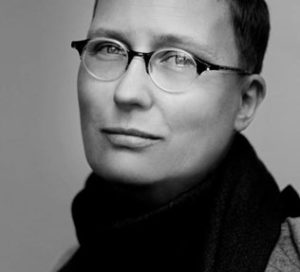
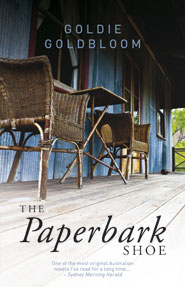
In Still Life with Teapot, in an essay called “Old Black Telephone”, Brigid Lowry speaks to her dead father:
Remember when I was eight, and you made those two poems of mine into a booklet? They were odd little poems, but not dreadful. One was about gypsies and one was about autumn leaves. You printed a hundred copies, I signed each one and we sold them to unsuspecting relatives for two and sixpence. That was the beginning. Something was planted in me then. The extraordinary idea that someone might value my words and ideas. That perhaps writing was a thing one might do.
When Jim Richards was a boy, he was inspired by real-life adventure stories:
In these books were tales of the wild gold rushes in California and the astonishing riches of the gold fields in Australia. There were real-life heroes and heroines with plenty of bounders, cads and villains. Fortunes were won and lost. To an unsophisticated lad from Wales, these stories were a revelation.
One day, Jim realised that his own life had become just this kind of an adventure story, and he sat down to write about his life as a geologist and gold seeker in a memoir called Gold Rush: How I Made, Lost and Made a Fortune.

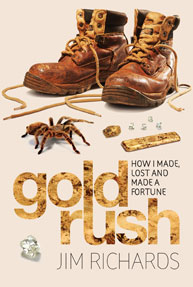
To poet Nandi Chinna, the act of writing and the act of walking are closely bound. In her introduction to Swamp Poems: Walking the Wetlands of the Swan Coastal Plain, Nandi writes about her process:
To define my walking/writing practice I constructed the neologism poepatetics or the poetry of walking: poe from poesis or making; patetics from peripatetics or walking, travelling; a person who walks and travels about. Poepatetics is a combination of three disciplines: the observed phenomena, the subjective bodily experience, and transcription of both the tangible and enigmatic into text.
The poems Nandi writes as she walks through bushland and swampland are elegies for the environment and a careful record of what we have lost and what we still might save.
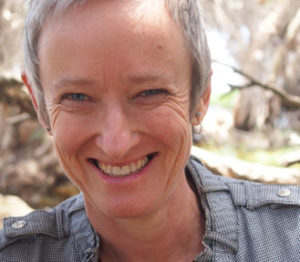
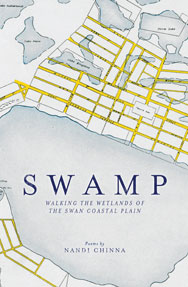
Some writers start out life as being something else. Once upon a time, Tracy Farr was a scientist; Deb Fitzpatrick proofread ads for a local paper and then went to live at the edge of a rainforest in Costa Rica. Anaesthetist Robert Edeson won the T.A.G. Hungerford Award for his novel The Weaver Fish on the day he retired from a career in medicine. Sarah Drummond, author of the non-fiction book Salt Story and a novel The Sound, is a fisherwoman and social historian. Crime writer David Whish-Wilson has a CV as unique as a fingerprint. In part, it reads: he left Australia aged eighteen to live for a decade in Europe, Africa and Asia, where he worked as a barman, actor, street seller, petty criminal, labourer, exterminator, factory worker, gardener, clerk, travel agent, teacher and drug-trial guinea pig.
Some writers like to make sense of the place that they have come from. So, in her hilarious and sad novel, Afternoons with Harvey Beam, Carrie Cox writes about a fictional town called Shorton, but tells us that she had her own hometown of Mackay in mind during the writing process: It was a wonderful place to grow up, but I have a somehow fractious relationship with it these days and that makes me sad. I’d like to fix that somehow.
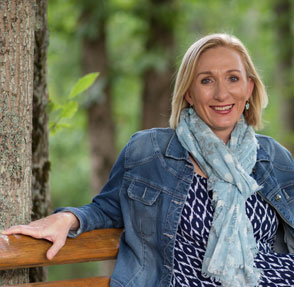
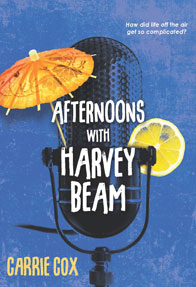
Writers come from all sorts of places, but they all share the desire to be read. People with the desire to write channel their past-life experiences, and every day experiences and, often, the rich world of their own imaginations into their work. As they write, life goes on around them: people are born and die, people move countries and change friendships and jobs. Injustices happen. Revelations occur. For writers, all the little experiences and big ones might flow into a poem, a story, a book.
As publishers, we are always on the lookout for writers with a story to tell, and the ability to tell it well. As publishers, our role is to bring the work of such writers to the nation, and to the rest of the world.
How does Fremantle Press find its writers?
Fremantle Press accepts stories by writers who live or have lived in WA, or whose work substantially contains Western Australian content. We accept work that is unsolicited – that is, representation from an agent or a recommendation from a significant peer is not required for a writer to send us their work.
At an event last year, Prime Minister’s Literary Award winner Joan London described what a difference it made to her having access to a local publisher when her writing career began with the 1986 publication of her collection of stories, Sister Ships. New writers like working with Fremantle Press because we understand their work, and what motivates it, and we know how to promote it. We understand what makes a story Western Australian and we are excited to work with writers to make their unique work the best it can possibly be.
And we look for writers, and find our writers, in many different ways.
Writing groups
Western Australia has some dynamic writing groups, many of which have a rich history of nurturing the writers in their community. These include Out of the Asylum Writers’ Group, Katharine Susannah Prichard Writers’ Centre, Fellowship of Australian Writers, Peter Cowan Writers Centre, Rockingham Writers Centre, and groups that spring up around the annual NaNoWriMo.
If you are a member of a writing group, then you will have the benefit of working with the peers around you, engaging with multiple voices and multiple points of view. By providing feedback to others, and thinking about others’ writing as well as your own, you are honing your skills as an editor, and this deeper interrogation of the writing process will only benefit your work.
Fremantle Press is always happy to be invited by writers centres to talk to members about what we are looking for in a manuscript, and how to best to prepare a manuscript for submission.
Universities
Western Australia’s universities are rich with creative production and, guided by talented supervisors, students have a valuable opportunity to work with peers and university tutors and lecturers to refine and workshop their writing.
Every year, the publishers at Fremantle Press visit universities to talk to postgrads and undergrads, mostly those involved in creative writing or professional writing units, but also others from the humanities. This year in second semester we will be paying a visit to postgraduates and writing students at Curtin, ECU, Murdoch and UWA and Notre Dame. Your course coordinators will let you know when there is an event scheduled.
The City of Fremantle T.A.G. Hungerford prize
Entries for submissions to the City of Fremantle 2018 T.A.G. Hungerford Award closed in March. This year, over 60 people entered the competition for first time writers of a book-length manuscript. Judging is now underway for this biennial award. The winner will receive $12,000 and a publishing contract with Fremantle Press. The travel memoir of last year’s winner Jay Martin, Vodka and Apple Juice, will be published this September. I can’t wait to receive the longlist from our three judges in a few months’ time to decide upon the new winner of an award that has launched the career of writers such as Madelaine Dickie, Brenda Walker, Gail Jones, Natasha Lester, Jacqueline Wright, Robert Edeson, Bruce Russell, Simone Lazaroo and Alice Nelson.
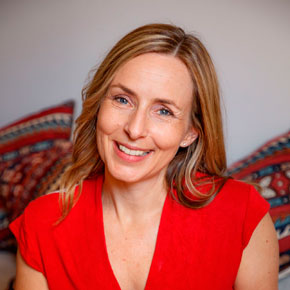
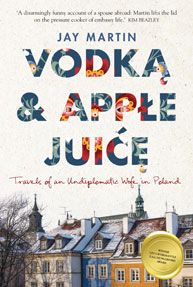
Writers festivals and waiting rooms
Some chance encounters at writers festivals have led to book contracts: for instance, the memoir that became Gold Rush was described to me by a woman in a toilet queue. She relayed his tale of derring-do so well that I invited him to submit to Fremantle Press. This is not to say that a strong pitch always leads to publication – the test must always be in the writing. But it’s a great example of serendipity, and a demonstration of the fact that we are always on the lookout for interesting manuscripts and strong ideas.
Although not every chance encounter has a bathroom theme, it was while attending an appointment with a friend that I met colorectal surgeon Michael Levitt, who mentioned he had just completed a manuscript on the subject of bowel health. Impressed by his empathy, wit and deep understanding of the workings of the lower intestine, I asked Michael if I might take a look at his manuscript – and as a result, The Happy Bowel is due to be published this June.
Last but not least: the slush pile
Every year, Fremantle Press receives hundreds of manuscripts, submitted by writers from all around the state or from writers who have a Western Australian connection. This is the chance for every Western Australian writer to have their work seen by us.
One of the best-known books that came to us through the slush pile was Albert Facey’s A Fortunate Life. The bestselling memoir arrived as a typed manuscript tied together with green and white waxed string. Fremantle Press assessment editor Wendy Jenkins said:
It did not look promising but almost immediately had my attention – and kept it. I read with growing interest, then excitement, skipping ahead to get a sense of the sweep of the life and to see if the story and voice were sustained. I experienced that almost visceral feeling I have had maybe 3 or 4 times when reading a manuscript by an unknown author that has arrived truly out of the blue. This is special. This is important. This is unique. It lifted from the pages and insisted on itself.
It’s that feeling of excitement, or promise, that Wendy describes, that we hope to find in any manuscript, no matter how it reaches us, and no matter whether we have met you already or you have pitched your story to us, or if you have been recommended to us, or have submitted your manuscript via our website.
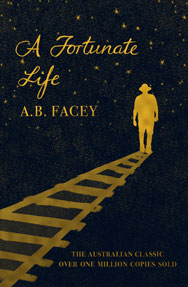
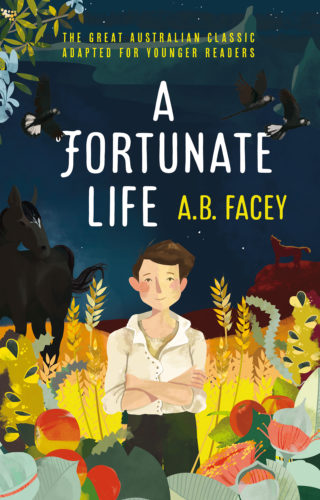
What are we looking for?
What are we looking for when we go out to talk to writers, or when writers send their work to us? We are looking for people with a story to tell, and the ability to tell it well. Writers with a fresh voice, and something interesting to say. Crime writers. Writers of narrative non-fiction. Young adult fiction writers. Indigenous writers, always. We sporadically publish collections of short prose – usually as an anthology, such as the recent publication Women of a Certain Age or the forthcoming collection of diverse voices, Meet Me at the Intersection. The few places allocated to poetry titles each year are hotly contested and in poetry our emphasis is on giving support to emerging voices.
Discovering new writers is thrilling. I love reading stories that change the way I see the world and that deepen my connection to place. I love watching the zeitgeist as different waves of manuscripts come in. Novels and non-fiction works about climate change and reconnecting with country are more prevalent now than when I began working at Fremantle Press a decade ago. There is a growing urgency in these tales. In recent times, we have begun to receive manuscripts set in Australia’s detention centres, troubling and vivid in their depiction of an unresolved chapter in our history. The February publication Spinifex and Sunflowers by Avan Judd Stallard was one such manuscript that arrived via the slush pile, a novel written by a former refugee-prison guard who worked at Curtin Immigration Detention Centre.
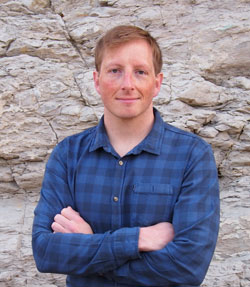
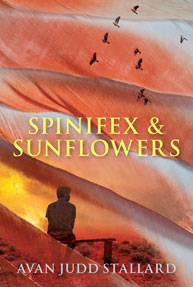
Sometimes stories from difficult places are not easy to come by, because a writer needs a degree of security, comfort, as well as the time to be able to sit down and write. The luxury and means to pause, reflect and explore is not one that everyone has, but with luck, it may arrive. And those are stories we will always be ready to consider.
Writers come from anywhere, and everywhere. Every writer has a different story to tell. There will often be a lag-time between the absorption of an experience, and its expression. Cogitation and writing take time. Sometimes a conversation I have today, or an experience that a writer has, may result in a manuscript being submitted to Fremantle Press in five or fifteen years. A writing career is long – for Fremantle Press and our writers, other rewards lie over the horizon, long after their career begins with us: national and international recognition, a Miles Franklin, a Prime Minister’s, a Ned Kelly, a Stella Prize.
Cultural capital can be measured by such prizes, but it can also be measured in the microcosm, and in the moment – and that is why we love to help Western Australian writers, here and now, to share their stories.



